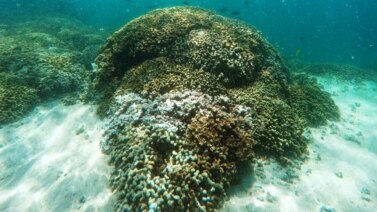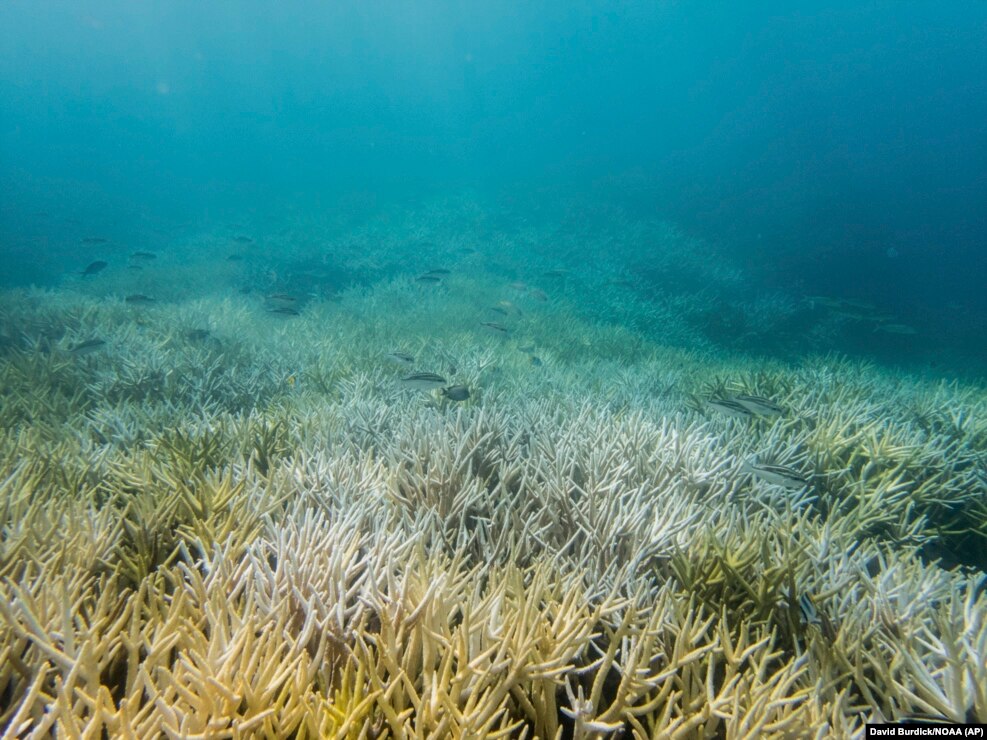
The world’s oceans are sick, and getting sicker every day.
Two new studies show the warming of Earth’s atmosphere is removing oxygen from ocean waters and harming coral reefs.
Oxygen is necessary for all life in the oceans, except for a few extremely small organisms. And researchers said oxygen levels are low enough to threaten all the ocean life that depends on it.
Denise Breitburg is an ocean scientist at the Smithsonian Environmental Research Center. She is also a member of the Global Ocean Oxygen Network, a team of scientists organized by the United Nations to study the issue.
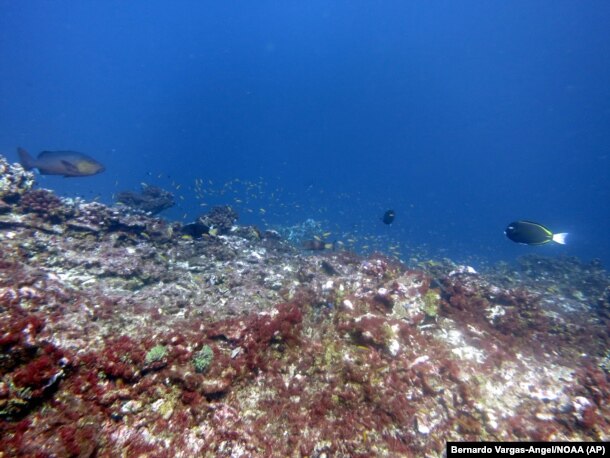
Breitburg told the Associated Press, “If you can’t breathe, nothing else matters. That pretty much describes it.”
The journal Science published the two studies. The first describes how the growing problem of falling oxygen levels is more complex than experts had thought. The second study shows that rising ocean temperatures are greatly increasing coral reef bleaching events.
Scientists with the Global Ocean Oxygen Network reported that more than 32 million square kilometers of ocean are low in oxygen. These affected areas reach a depth of about 200 meters.
This area is bigger than Africa, the second largest continent. The scientists say the area of low oxygen levels has grown about 16 percent since 1950.
The Global Ocean Oxygen Network’s report is the widest reaching look at decreasing oxygen levels in the world’s seas so far. Lisa Levin is a professor at the Scripps Institution of Oceanography and a co-author of the report.
In her words, “The low oxygen problem is the biggest unknown climate change consequence out there.”
Levin said past research had shown low oxygen areas that were the result of agricultural pollution. She said past studies also showed how warmer waters had created a lack of oxygen. But Levin said this latest study shows how both problems are connected by common causes and possible solutions.
Co-author Denise Breitburg said that some low oxygen levels in the world’s ocean are natural, but not to the extent found. Wind patterns and ocean currents, believed changed by global warming, are preventing oxygen from sinking below the surface of the water. In addition, warmer water does not hold as much oxygen and less oxygen mixes into the water, she said.
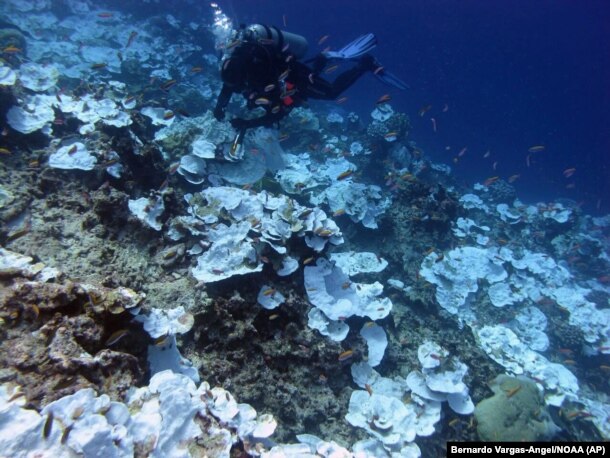
In the other study, a team of experts looked at 100 coral reefs around the world. They examined how often the reefs experienced severe bleaching events since 1980.
Bleaching happens when water temperature rises just 1 degree Celsius above the normal high for an area. Before the 1980s, reefs that experienced bleaching would have 25 to 30 years before another event. The new study finds that bleaching events are now only about six years apart.
Bleaching is not quite killing the sensitive corals. But it is breaking down the algae that lives inside them. This severely sickens the coral.
Co-author Mark Eakin runs the Coral Reef Watch program for the United States National Oceanic and Atmospheric Administration. He said coral reefs near Guam are some of the hardest hit. He said there have eight severe bleaching incidents there since 1994. Four of the incidents were in the last five years.
Eakin said that it takes time to recover from bleaching. But, he said, now bleachings are happening too often for coral to recover.
Only six of the 100 coral reefs had not experienced severe bleaching. Four are around Australia, one is in the Indian Ocean and another is off South Africa’s coast.
But bleaching is not the only issue coral reefs face. Trash is also a danger. Another team of researchers recently reported about tons of plastic waste trapped in coral reefs from Thailand to Australia. The plastic is severely sickening the reefs, they said.
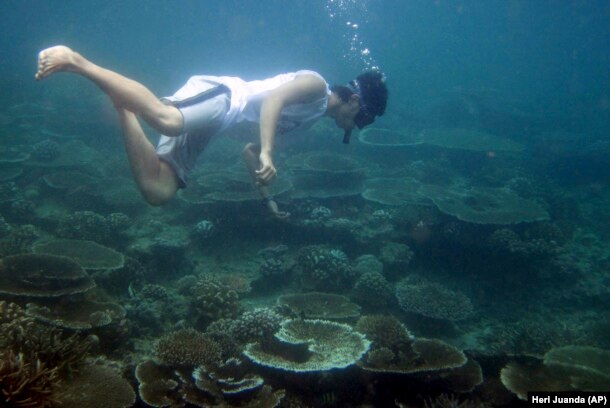
That study was also published in the journal Science. It found that a total of 11.1 billion pieces of plastic are stuck in reefs in the Asia-Pacific region. The waste includes plastic bags and fishing equipment.
The scientists predicted the amount of plastic would rise 40 percent by 2025.
Plastic increases the likelihood of coral disease by about 20 times. It can damage the structure, weakening a coral reef’s defenses. Plastic can also transport other organisms that harm coral.
The study’s authors urged stronger restrictions on plastic waste. They also said better management of the fishing industry is necessary to protect coral.
I’m Pete Musto. And I’m Anna Matteo.
Pete Musto adapted this story for VOA Learning English from Associated Press and Reuters news reports. Caty Weaver was the editor.
We want to hear from you. What more do you think the nations of the world can and should do to protect the oceans? Write to us in the Comments Section or on our Facebook page.
Words in This Story
coral reef(s) - n. a long line of hard material formed on the bottom of the sea by the skeletons of small creatures that lies in warm, shallow water
journal - n. a magazine that reports on things of special interest to a particular group of people
bleaching - n. the removal color from something especially through the effect of sunlight or by using chemicals
author - n. a person who has written something
consequence - n. something that happens as a result of a particular action or set of conditions
(to the) extent - n. used to describe the effect or importance of something in relation to something else
pattern(s) - n. the regular and repeated way in which something happens or is done
quite - adj. completely or entirely
sensitive - adj. easily affected by something in a way that is not pleasant or good
algae - n. simple plants that have no leaves or stems and that grow in or near water
trash - n. things that are no longer useful or wanted and that have been thrown away
ton(s) - n. a large amount
region - n. a part of a country or of the world that is different or separate from other parts in some way
management - n. the act or process of controlling and dealing with something


